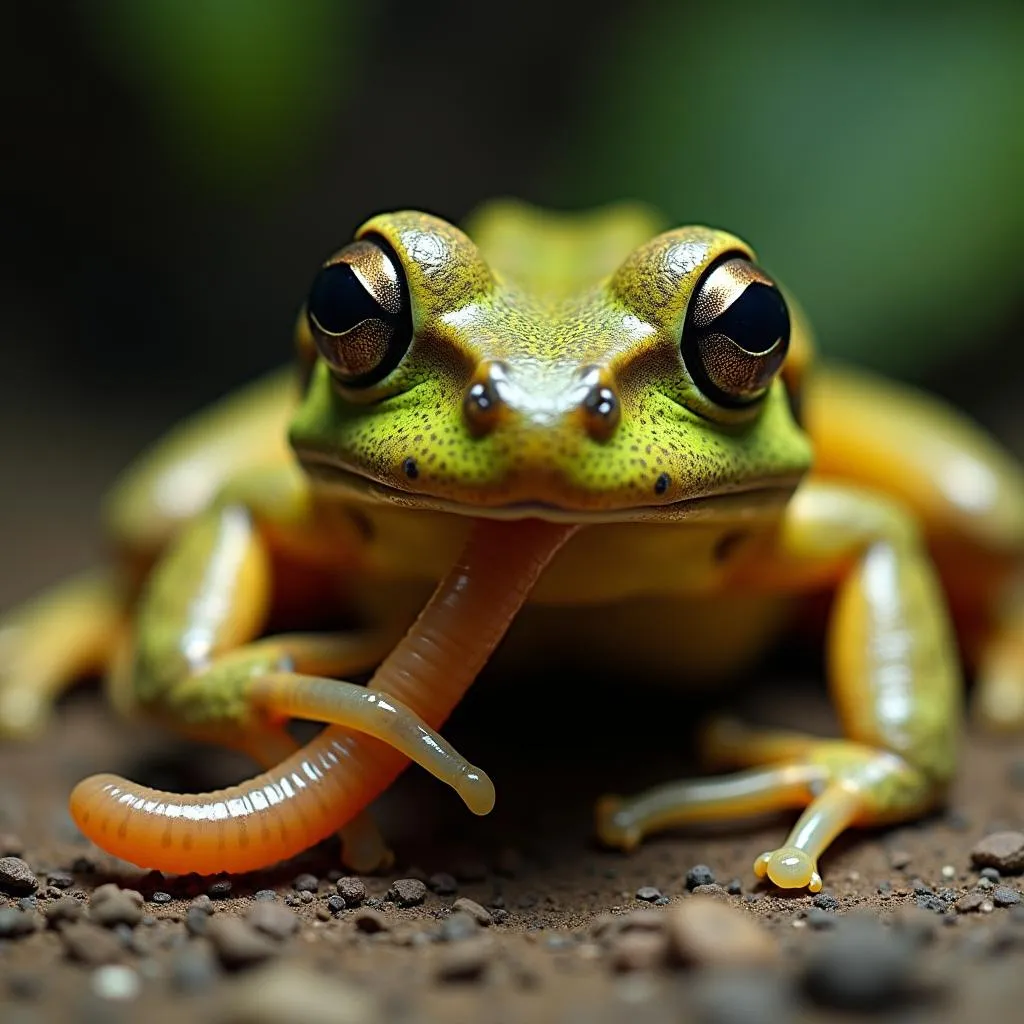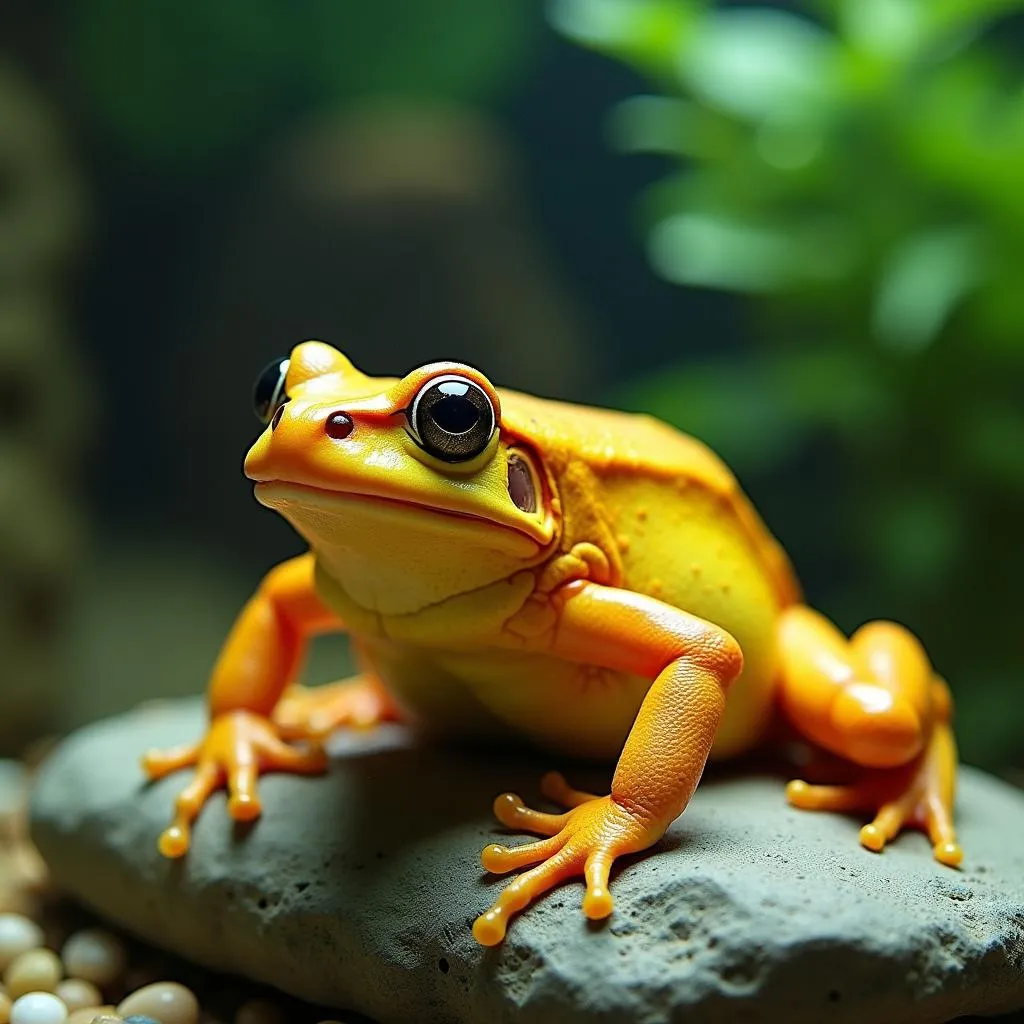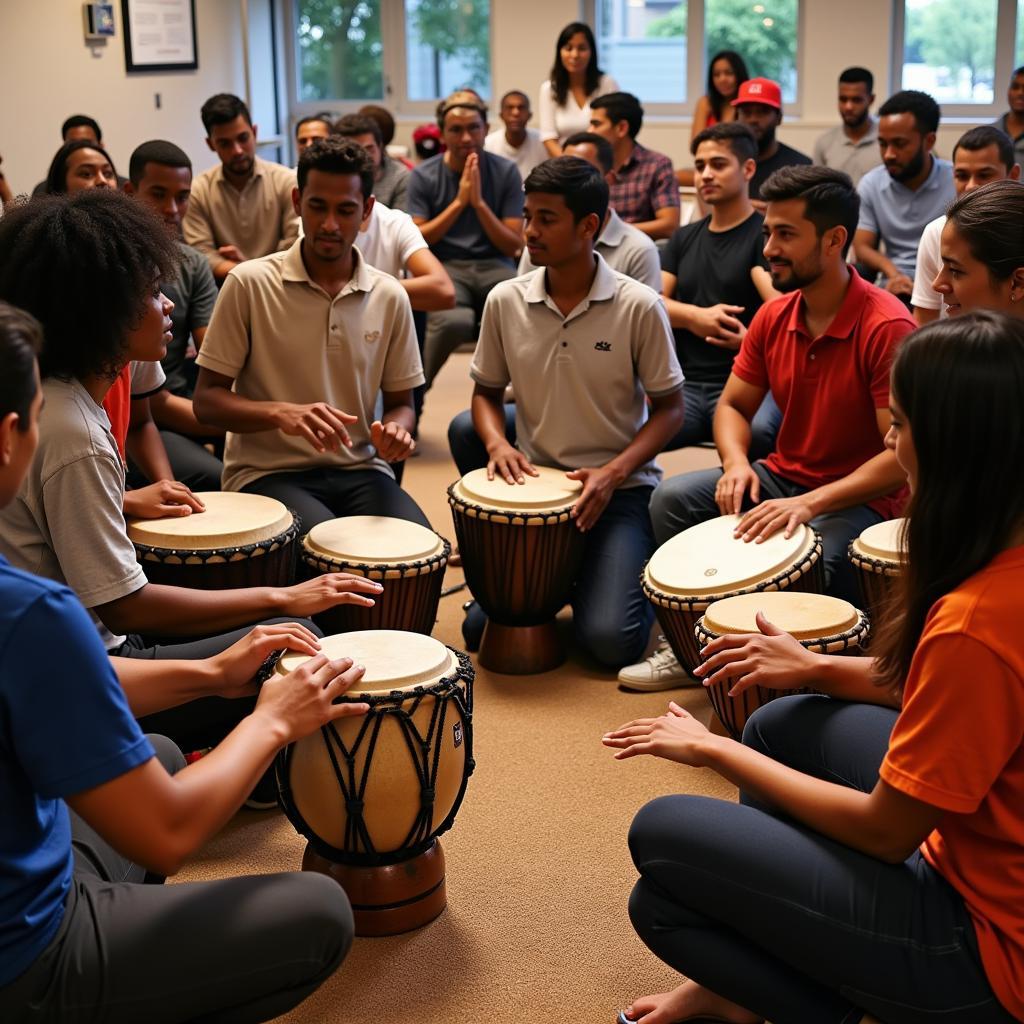The Ultimate Guide to the African Clawed Frog Diet
The African clawed frog, scientifically known as Xenopus laevis, is a fascinating aquatic species native to the sub-Saharan region of Africa. These captivating creatures, with their flattened bodies and clawed hind feet, have become popular pets worldwide. Providing a proper African Clawed Frog Diet is crucial for their health and longevity. This comprehensive guide will delve deep into the dietary needs of these unique amphibians, offering insights into what, how, and how often to feed them.
Understanding the African Clawed Frog’s Natural Diet
In their natural habitat, African clawed frogs are opportunistic carnivores, meaning they’ll eat just about anything that moves and fits in their mouths. Their diet primarily consists of insects, insect larvae, small crustaceans, worms, and even smaller amphibians. This diverse diet in the wild highlights the importance of variety in an African clawed frog diet in captivity.
Best Food for African Clawed Frogs in Captivity
While replicating their exact wild diet at home might be challenging, there are plenty of commercially available options and some homemade treats that can ensure your African clawed frog thrives.
Commercial Food Options
- Commercial Frog Pellets: These are an excellent staple diet for African clawed frogs, offering a balanced mix of nutrients. Choose sinking pellets specifically formulated for aquatic frogs.
- Freeze-Dried and Frozen Foods: Offer variety and enrichment with treats like bloodworms, brine shrimp, daphnia, and tubifex worms. These options are rich in protein and other essential nutrients.
Live Food Options
- Nightcrawlers: These worms are a favorite among African clawed frogs, but ensure they are chopped into manageable pieces, especially for younger frogs.
- Guppies and Ghost Shrimp: These can be offered as occasional live food, encouraging your frog’s natural hunting instincts. However, avoid overfeeding live fish as they can carry parasites.
 African Clawed Frog Eating a Worm
African Clawed Frog Eating a Worm
How to Feed Your African Clawed Frog
Feeding an African clawed frog correctly is just as crucial as providing the right food. Here are some tips for successful feeding:
- Frequency: Young African clawed frogs (under a year old) need daily feeding, while adults can be fed every other day or a few times a week.
- Quantity: A good rule of thumb is to feed only what your frog can consume in about 5 minutes.
- Feeding Method: Avoid overfeeding by using a feeding dish or tongs to offer food directly to your frog. This prevents uneaten food from decaying in the tank.
Foods to Avoid
While African clawed frogs are not picky eaters, certain foods can be harmful and should be avoided:
- Overfeeding: Obesity is a common problem in captive African clawed frogs.
- Fatty Foods: Limit fatty foods like beef heart and pork as they can lead to health issues.
- Cooked Meat and Poultry: African clawed frogs lack the enzymes to digest cooked meat.
- Wild-Caught Insects: These can carry parasites and pesticides that are harmful to your frog.
Signs of a Healthy Diet
A well-fed African clawed frog will display several signs of good health:
- Active and Alert: Your frog should be active and responsive to its surroundings.
- Healthy Weight: The body should be plump but not overly rounded, with no visible bones.
- Clear Skin: The skin should be smooth and free of any discoloration, lesions, or sores.
 Healthy African Clawed Frog in a Tank
Healthy African Clawed Frog in a Tank
African Clawed Frog Diet FAQs
1. Can I feed my African clawed frog fruits and vegetables?
African clawed frogs are primarily carnivores and cannot digest plant matter effectively. Stick to a meat-based diet.
2. Why is my African clawed frog not eating?
Several factors can contribute to a loss of appetite, including stress, improper water parameters, illness, or simply being full from a recent feeding. If the problem persists, consult a veterinarian.
3. How much water do African clawed frogs need?
They are fully aquatic and require a spacious tank with enough water for swimming. A 10-gallon tank is suitable for one frog, and you’ll need to increase the tank size for additional frogs.
Need More Help?
For personalized advice and support on caring for your African clawed frog, get in touch with our team!
Contact Us:
- Phone: +255768904061
- Email: kaka.mag@gmail.com
- Visit Us: Mbarali DC Mawindi, Kangaga, Tanzania
Our dedicated customer care team is available 24/7 to assist you.
